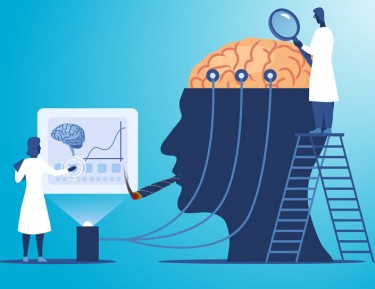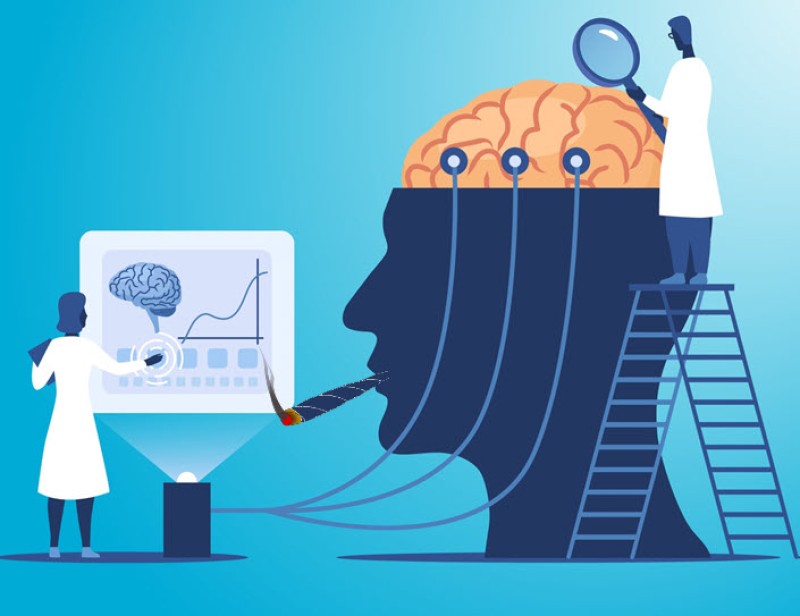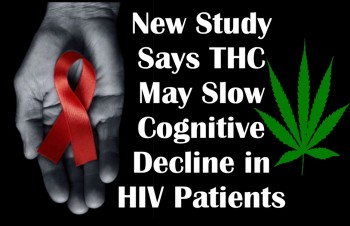
King’s College London Begins 6,000-Person Study on Cannabis andMental Health
An academic institution in London has begun a £2.5 million investigation into the impact of marijuana on the brain.
One of the top 10 colleges in the U.K., King's College London, recently declared that it was about to commence research on how cannabis affects mental health. Dr. Marta di Forti, a Senior Clinical Fellow of the Medical Research Council (MRC), who has previously worked on studies including cannabis, will serve as the lead researcher for the study.
"We want to connect with everyone who uses marijuana, especially those who gain something from it. Without their assistance, the discussion over cannabis would remain divisive, with us believing it to be entirely harmful and should be outlawed and others asserting that since it is a plant, it cannot have negative consequences", Dr Marta stated.
"Cannabis & Me (CAMe)" is the name given to the study, and King's College London is the sole sponsor. Dr Martha Di Forti first presented the study to the Medical Research Council in 2019, and a $2.5 million grant was awarded to it in 2020 as it was approved. "The pandemic had put off the beginning until now. The project incorporates many partnerships and laboratories, all of which were impacted by COVID-19. Finally, everyone is prepared to begin, "said Dr. di Forti. The study will be conducted for five years, with preliminary findings perhaps being released in 2023 or likely early 2024.
THE AIM OF THE STUDY
According to Dr. di Forti, the people affected by cannabis are the clinical group she cares for as a physician; thus, the primary goal of the study is to understand why some marijuana users experience negative cognitive and psychological effects. We will use virtual reality to test whether or how cannabis affects reality perception, Dr. di Forti added. She went on to say, "If they can detect the biological and environmental factors that render a minority vulnerable to negative impacts when making use of cannabis daily, either for recreational or medical purposes, they can approve safe prescribing and side-effects assessment."
Di Forti also emphasized the need for greater details regarding potential drawbacks in addition to favourable outcomes. We can also provide more knowledge to the general population, she added, so they can learn how to spot negative consequences of the use of cannabis and how to avoid them altogether. Everybody in our community can recognize the harmful effects of binge drinking, but not everyone knows how to spot the changes in their ability to process information, their thinking, and their reasoning that a few cannabis users experience.
THE STUDY
The authors of the study acknowledged the necessity for additional research in light of the swift rise in global consumers in their explanation of the study's objectives. This research focuses on studying the broader impact of marijuana usage on the mental and physical well-being of marijuana users at a time when marijuana use is rising globally. Additionally, it tries to pinpoint biological and environmental variables that may account for the various effects that cannabis use has on users, particularly pointing out those who are more likely to encounter social and mental health problems.
There will be 6,000 volunteers in the study who must currently be residing in the London region and range in age from 18 to 45. In addition to participating in an online survey, they will also have to consent to a face-to-face evaluation, a blood sample submission, and a virtual reality session (which will be employed to analyze a person's physiological response to particular conditions). Participation is subject to several critical restrictions, including the need that the participant not be currently being treated for a psychotic disorder and have no history of such a diagnosis.
Candidates will be selected for in-person physical interviews on the basis of their current marijuana usage or of having never or only twice indulged in marijuana.
MISINTERPRETATIONS AND PREVIOUS STUDIES
Dr Martha di Forti has investigated the connection between marijuana consumption and psychotic illnesses in the past. She got the result that the "risk of people experiencing a psychotic condition showed an approximately three-fold increase among consumers of skunk-like marijuana in comparison with people who never used marijuana", based on the findings of a 2015 study. Di Forti disagrees with the exploitation of the study's findings to bolster anti-cannabis campaigns. In a conversation with Cannabis Health, di Forti remarked, "Sometimes the political debate surrounding cannabis has exploited my research in a context which does not necessarily represent my position, and this is what manages to bother me." People now link me with the notion that cannabis is harmful and that no one should use it, which is not how I feel.
Another 2019 study built on the earlier one, concluding that everyday use of high-potency marijuana is "strongly associated with the risk of developing mental illness." If high-potency marijuana were no longer legal in Amsterdam and London, respectively, psychosis rates would be predicted to fall to 18.8 from 37.9 per 100,000 people every year and from 45.7 to 31.9.
The Lancet Psychiatry, where the research was first published, responded by publishing a piece that questioned the study's causation premise.
The study's authors claimed that their research and previous findings "show that marijuana usage might be greater among individuals with a genetic predisposition that exposes such people to marijuana use and the occurrence of psychotic illnesses."
Dr Di Forti is an accomplished and well-respected researcher, stated Professor Mike Barnes, president of the Medical Cannabis Clinicians Society and the Cannabis Industry Council. Her research has centred on the associations between psychosis and recreational high-THC usage, though.
He continued, I want to make sure that this research isn't biased to support her earlier findings. We must keep in mind that using cannabis for medical purposes with a valid prescription bears almost no danger of psychosis because the patient will have had the necessary screenings, and the medication will contain CBD, which counteracts the THC "high." This is an intriguing research trial, provided that any outcomes and study recruitment were not biased.
BOTTOM LINE
The study is set to help determine the relationship between cannabis and mental health, i.e., at which point cannabis starts to impact mental health negatively. It is not meant to be an anti-cannabis stepping stone.
MEDICAL MARIJUANA AND MENTAL HEALTH, READ ON...
CANNABIS FOR A HIGHER MENTAL HEALTH, YES SAYS NEW BRAZILIAN STUDY!







